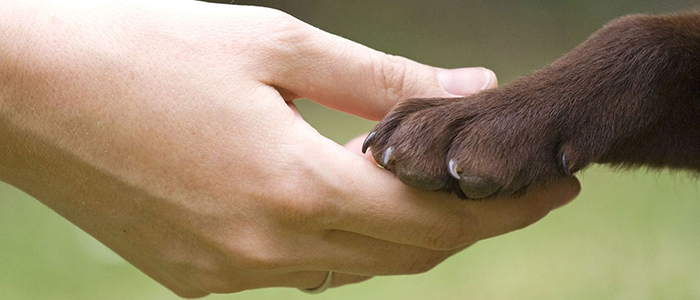What is PAWS and its possible connection to those recovering from an addiction?
PAWS otherwise known as Post Acute Withdrawal Syndrome is a condition that can arise and persist with individuals in recovery long after the initial withdrawal symptoms expect or seemed to have subsided. The symptoms during the initial withdrawal are physical in nature whereas with PAWS the symptoms are emotional and psychological. There are many factors that contribute to whether someone will experience PAWS or not, and in addition be individual specific. Not everyone who goes through cessation will experience post-acute withdrawal syndrome. However, those experiencing PAWS can have symptoms for as long as 24 months.
Factors that contribute to PAWS
Duration of use-
The duration of use is a factor that can contribute to the likelihood someone will experience post -acute withdrawal syndrome. The longer someone was using, the greater the severity of the withdrawal as well. Long term opioid use as an example often experience PAWS because their body needs to re-learn how to manufacture its own, endogenous endorphins rather than rely on a synthetic drug.
How often used-
Most of the people that experience PAWS were frequent users of their drug of choice. The likelihood is higher with past daily and even multiple daily use. On the other end of the spectrum, a person with a history of using once a week has a small chance of experiencing PAWS.
Amount of dosage-
Taken in small doses during the course of its use is not likely to be a factor in post-acute withdrawal syndrome whereas going beyond what would be a therapeutic dose increases the chances exponentially. Many drugs including over-the-counter drugs can have a lesser than desired effect due to the effects of tolerance in our systems. This results in the user upping the dosage to achieve the same effect. As the dosages increase, so does the physiological changes in the brain. Therefore, abrupt discontinuance of the drug taken in high doses increases the chances of experiencing PAWS.
Stopping usage or tapering off-
It is well understood that stopping a drug completely puts the body in shock and chaos increasing greatly the chance of experiencing PAWS. Tapering off a drug decreases the chances, however in many cases tapering does not help the user’s chance of total cessation, and depending on the drug use it may be medically imperative that the drug is stopped all at once.
Individual Specific-
Since no two people are alike excluding identical twins, the chances of experiencing PAWS can vary. Two people can take the same drug in dosage, frequency, and length of time and experience different lengths of initial and long-term withdrawals. The risk factors can be attributed to their personal habits such as dietary, sleep, stress levels, exercise habits and overall lifestyle. Nevertheless, the reason people experience withdrawal is because the brain is no longer getting the drug and cannot immediately compensate. It takes time for the brain chemically to attain homeostasis again.
PAWS drugs
Drug types or classes of drugs-
Certain types of drugs or drug classes have a more profound effect on brain function and therefore usage of these drugs in high frequency, dosages, and time-span almost can guarantee a post-acute withdrawal phase. These drugs are:
- Alcohol
- Antidepressants
- Antipsychotics
- Benzodiazepines
- Opioids
- Stimulants
- Steroids
Symptoms of PAWS
Concentration Problems-
This can be noticed by loss of focus or organizing thought processes. This is usually caused by the loss of dopamine receptors in the brain. People who have used stimulants often find their brain function to be lower than it was before taking the drug.
Anxiety-
Anxiety is a common symptom of drug withdrawal and more pronounced in individuals that were taking benzodiazepines as their drug of choice.
Anhedonia-
This is the inability to experience any pleasure in anything. This is due to the reduction in neurotransmitters that produce pleasure and is often found in those that were using amphetamines or methamphetamines .
Depersonalization-
This is where the person just does not feel like their “old self” and things seem strange. This can also feel like one is completely numb and without a soul. This can be long lasting and made worse by stressful situations.
Depression-
The depression someone may experience can vary in intensity and also be caused by withdrawal from antidepressant abuse even though there was not any depression or mental illness prior to use.
Fatigue-
This can be long lasting after drug discontinuance and mimic chronic fatigue syndrome.
Hypersensitivity and Vigilance-
After discontinuance can experience photosensitivity and tactile sensations that are actually painful. Normal sounds can be amplified to the person too. This lasts until the nervous system has a chance to reset to a normal state.
Inability to sleep or insomnia –
This is a very common symptom and when the brain adjusts back to a more normal circadian rhythm will get better over time.
Social withdrawal-
Wanting to withdraw socially is due to the fact that the person is going through strong emotional turmoil. If the person does not feel as though they can even carry on a conversation it is easier to just escape interaction with others. However, it is the continued interaction with others that will help speed the recovery process.
Treatment for PAWS
Cognitive Behavioral Therapy (CBT)-
CBT can be effective in helping one emotionally as well as helping them to think more clearly with results in a change in behavior. This should be done under the supervision of a licensed therapist.
Exercise-
Exercise is good to help healing in moderation, however it has been reported that too much actually can slow down the recovery time.
Nutrition-
What you eat is so important whether you are experiencing post-acute withdrawal syndrome or not. The old saying you are what you eat applies here. Eating high processed foods is not a good recipe for PAWS.
Stress Reduction-
There are many forms of stress reduction techniques now available. It is highly advisable and effective for a person that is experiencing PAWS to adapt a regular stress reduction routine. This will help with symptoms when they appear out of the blue after having had experienced a trigger.
Monarch Sober Living Home residents have experienced varying forms and intensities of withdrawal.
The “family” of Monarch Sober Living Homes residents, house managers and principals are here to help you through your healing process and transition in recovery !

